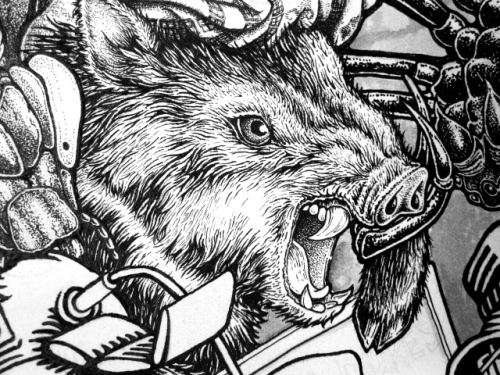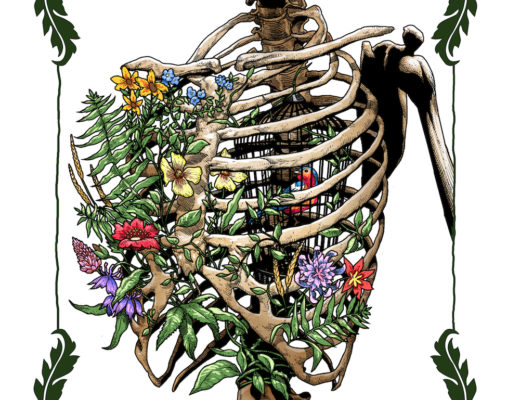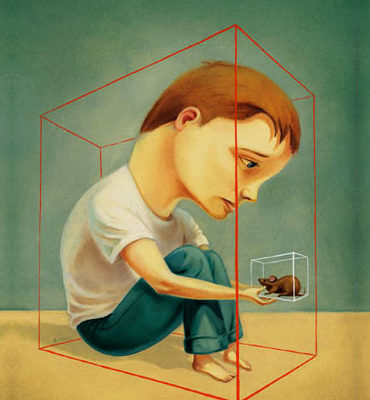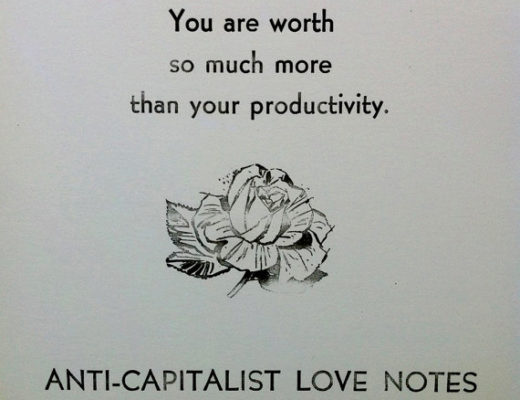This blog was originally hosted at Empty Cages Design.org as part of a series on Overcoming Burnout from 2016-2017. It has now been turned into a book that is available at: https://solidarityapothecary.org/overcomingburnout/
In this piece, I want to talk about power and powerlessness. I feel it’s integral to exploring what can make organising for any kind of social change feel empowering or soul-destroying.
Like most kids, I felt pretty powerless over my own life. Like everyone, I had little or no power over where I lived, how much money we had, where I went to school and so forth. I had even less power over my parents’ decision to break up as a four-year-old, and as I ached for my dad to remain in my life, to live in the same country as me, ultimately I was powerless to the fact that he didn’t. I was powerless over my Mum’s choice of partner, or which men were coming in and out of our lives. But what broke my heart the most was my inability at the time to understand my Mother’s depression, and I felt completely powerless to make her feel better or to change how she felt about the world.
Now I’m older I can rationalise the situation, the reactive depression she experienced as a single parent without a safety net and little social support. But as a little girl, I just wanted her to stop crying and I had no idea how. Overwhelming feelings of powerlessness have been an undercurrent of my life ever since. I’ve identified these feelings as being a source of my compensating hyperactivity, workaholism and over-responsibility for others.
A friend of mine who went to a public school told me that the way they interact with you there is breeding this sense of power – that you are going to be society’s next leaders and decision makers. The world is yours for the taking. Ask any working class kid, and you can guarantee that state schooling gives you the opposite feeling. I felt I had little attention either way as to whether I was ‘successful’. The goal was to be happy. Happy with your lot. It’s a good goal but it still creates this lingering feeling in you that you are powerless to change anything more, be of any more influence, be more ‘powerful’. I felt like there were no reverberating shocks when I skipped school, messed around with drugs, dropped out of college and ended up in prison. There is no status to lose, no shattered dream.
For me, I was lucky to find a gateway as a kid into a whole new world of people reclaiming their power and fighting systems of oppression. At ten years old I became connected to the animal liberation movement. I remember when I was 13 on a national demonstration against Huntingdon Life Sciences (HLS), everything just kicked off. Police lines were broken, windows smashed. The city was ours. I remember with glee watching older folks pick up horse shit and launch it at the police. I felt part of something powerful. This movement was my antidote to the all-consuming powerlessness I felt in my daily life at home. I was surrounded by amazing people, including a wonderful group of older women, who at the time as I looked at them with puppy dog eyes, seemed like the bravest, fearless and most powerful people I’d ever met.
Organising gave me a sense of power. I had the agency to make decisions. I felt useful and needed. I had support around me from these incredible mentors, from local grassroots groups and from wider networks. In SHAC’s heyday (Stop Huntingdon Animal Cruelty – the campaign against Europe’s largest animal testing company HLS), I felt part of the most powerful campaign in the world.
The repression it attracted, therefore, destroyed the movement’s sense of power. This is greatly felt on an individual level. No longer part of a movement that is making waves, you feel subject to forces much greater than yourself. You feel completely overwhelmed by state power. Prison strips your personal power from you in the most brutalising and dehumanising of ways.
It is not ironic perhaps, that in prison I found design, most specifically permaculture design. It is a skill set and toolkit that can help you navigate in the depths of chaos and complexity. In prison, when undertaking a distance learning course in permaculture, as part of the course I was given the Designer’s Manual. A huge book, I had no idea of its worth and used to use it as a coffee table in my cell! However a quote in there, pinned to my cell wall, has stayed with me ever since:
“In chaos lies unparalleled opportunity for imposing creative order.”
– Bill Mollison
My life felt like chaos. I had lost the campaign that was the focus of my life, lost my partner, job and home. Yet design helped me reclaim my power. I was no longer lost at sea, I had a compass and a map of my needs and desires, and it helped me heal my fragmented self, and believe there was something positive that could come from this experience.
Permaculture gave me the feeling that we have the power to re-design society, not just be constantly dwarfed by systems of power we are trying to battle. And now I’ve engaged with and observed the beautiful, diverse, and sometimes super problematic permaculture movement, I can begin to see where other forms of power intersect with it, such as capitalism, the state and different forms of oppression and domination.
In analysing power, I believe it is necessary to vigilantly observe patterns in our movements that reduce our power. We have to attempt to plug these spirals of erosion. These may be, for example, burnout, poor mutual aid and solidarity, repression, ineffective strategies that increase feelings of powerlessness, and smoke and mirror reactive organising that railroads our energy.
On a personal level, we can ask ourselves, what makes us feel powerless? My posts about patriarchy and class may read like cathartic rants, but actually, they are observations of what diminishes my sense of power or reinforces my ingrained feelings of powerlessness in patriarchy and an entrenched British class system.
Burnout increases feelings of powerlessness and hopelessness. I’m still not sure if it is a cause or a symptom. The relentless loss of loved ones to death, repression or change intensifies these feelings. Death and grief are perhaps the most powerlessness rendering states of all. There is nothing you can do to bring someone back, the finality is piercing.
I feel a diminished sense of power with my health. An inability to act, respond or use force in a way that demands physical energy. I ache to visit my friends that need more practical support. I yearn to organise and blast through campaign to do lists. And yet, I am also beginning to feel the power in my vulnerability. The power of flow and trust, and the power of gentleness, healing and radical self-care.
When you have felt powerless, by feeling the tyranny of being dominated, there is little desire (in my experience) to then become the dominator – this is why for me, anarchism holds such beautiful promise.
So I ask again:
- What makes you feel powerless or powerful?
- What has helped you in the past to reclaim a sense of power or overcome feelings of powerlessness?
- How can you reclaim feelings of power without dominating others?
- How can we build power in our movements?
- And finally, how can we collectively respond to addressing the diminished power we have by working to stop losing comrades and friends to burnout?





No Comments